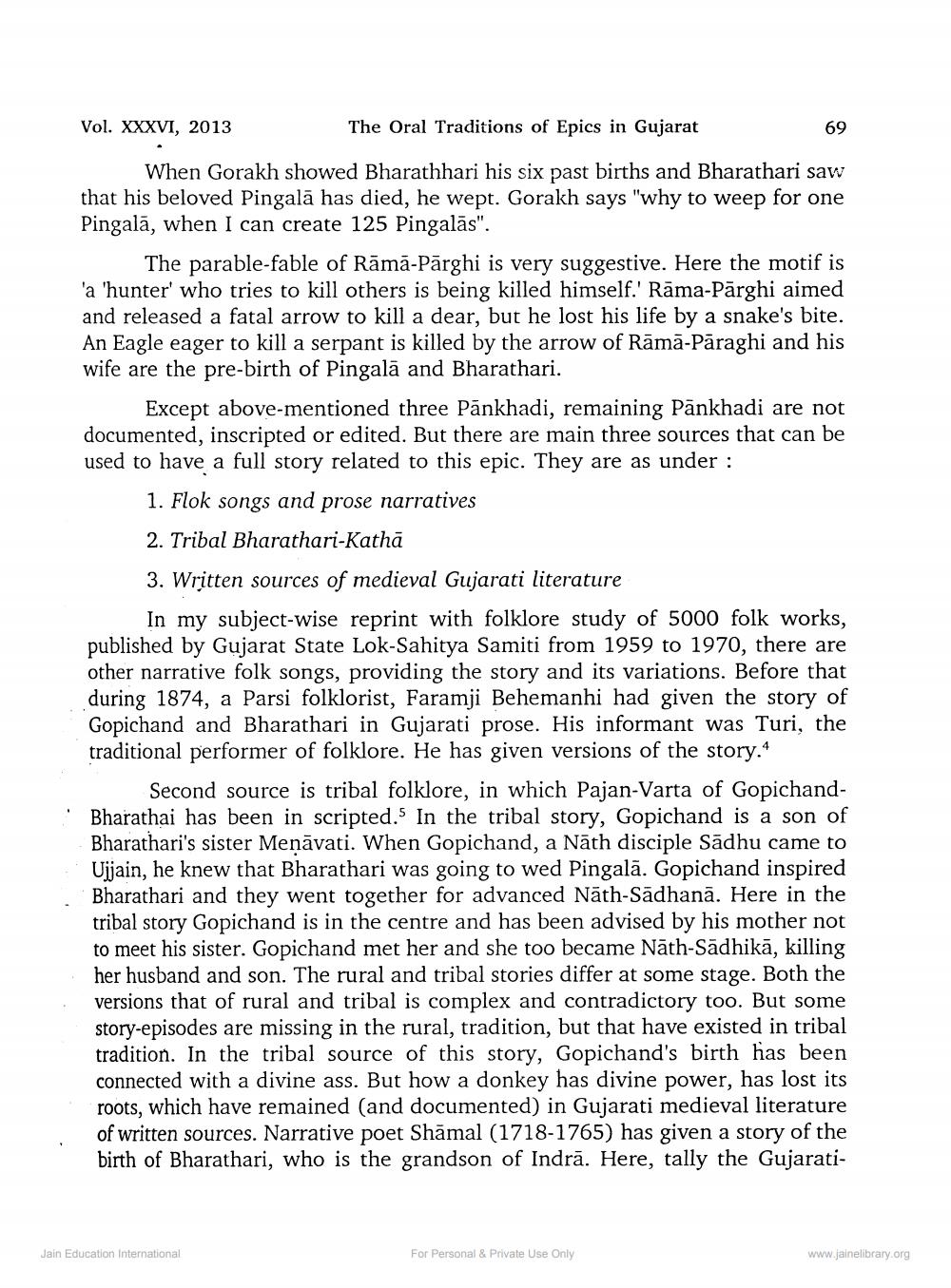________________
Vol. XXXVI, 2013
The Oral Traditions of Epics in Gujarat
69
When Gorakh showed Bharathhari his six past births and Bharathari saw that his beloved Pingalā has died, he wept. Gorakh says "why to weep for one Pingalā, when I can create 125 Pingalās".
The parable-fable of Rāmā-Pārghi is very suggestive. Here the motif is 'a 'hunter' who tries to kill others is being killed himself.' Rāma-Pārghi aimed and released a fatal arrow to kill a dear, but he lost his life by a snake's bite. An Eagle eager to kill a serpant is killed by the arrow of Rāmā-Pāraghi and his wife are the pre-birth of Pingalā and Bharathari.
Except above-mentioned three Pankhadi, remaining Pankhadi are not documented, inscripted or edited. But there are main three sources that can be used to have a full story related to this epic. They are as under :
1. Flok songs and prose narratives 2. Tribal Bharathari-Kathā
3. Written sources of medieval Gujarati literature
In my subject-wise reprint with folklore study of 5000 folk works, published by Gujarat State Lok-Sahitya Samiti from 1959 to 1970, there are other narrative folk songs, providing the story and its variations. Before that during 1874, a Parsi folklorist, Faramji Behemanhi had given the story of Gopichand and Bharathari in Gujarati prose. His informant was Turi, the traditional performer of folklore. He has given versions of the story.
Second source is tribal folklore, in which Pajan-Varta of GopichandBharathai has been in scripted. In the tribal story, Gopichand is a son of Bharathari's sister Menāvati. When Gopichand, a Nāth disciple Sādhu came to Ujjain, he knew that Bharathari was going to wed Pingalā. Gopichand inspired Bharathari and they went together for advanced Näth-Sādhanā. Here in the tribal story Gopichand is in the centre and has been advised by his mother not to meet his sister. Gopichand met her and she too became Nāth-Sādhikā, killing her husband and son. The rural and tribal stories differ at some stage. Both the versions that of rural and tribal is complex and contradictory too. But some story-episodes are missing in the rural, tradition, but that have existed in tribal tradition. In the tribal source of this story, Gopichand's birth has been connected with a divine ass. But how a donkey has divine power, has lost its roots, which have remained (and documented) in Gujarati medieval literature of written sources. Narrative poet Shāmal (1718-1765) has given a story of the birth of Bharathari, who is the grandson of Indrā. Here, tally the Gujarati
Jain Education International
For Personal & Private Use Only
www.jainelibrary.org




